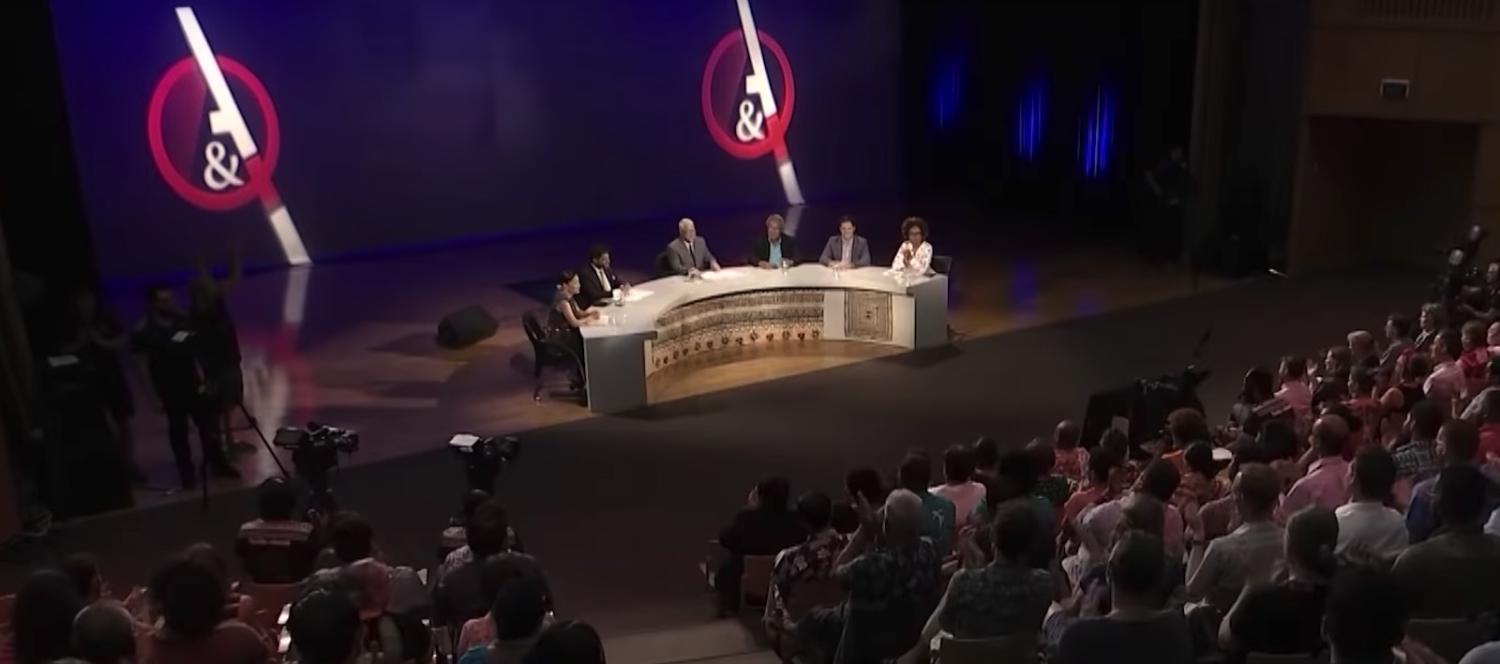As 2019 winds up, Lowy Institute staff and Interpreter contributors offer their favourite books, articles, films, or TV programs this year.
Earlier this month, Australia’s national broadcaster, the ABC, hosted its flagship Monday night program Q&A in Suva, Fiji. For Australian political junkies, this live broadcast of panel discussion involving an interactive audience both in the studio and from home is must-watch TV, and in its more than 500-episode run, Q&A has only ever broadcast from abroad three times (Shanghai, Jakarta, and New Delhi).
This episode in Fiji was the fourth, which was long overdue and most welcome, and I had the privilege of being in the audience for the broadcast.
In true Fiji fashion, the audience was surely the most colourful in Q&A’s history, with bula shirts the spectrum of the rainbow and not a single “Stop Adani” t-shirt in sight (though some expats told me they’d threatened to dust theirs off).
The producers had the difficult task of appealing to an Australian audience that knows next to nothing about the Pacific, and a Pacific audience that know the issues back-to-front.
Endeavouring to make the show not only broadcast from the Pacific, but featuring voices from the Pacific, the producers made sure that the white-man quota was low and filled appropriately – by moderator Tony Jones and Australian Minister for Pacific Alex Hawke. The Pacific voices on the panel were formidable professionals and politicians from across the region. The standout of the show was feminist and political activist Virisila Buadromo, who stared down the Fiji Attorney General Aiyaz Sayed-Khaiyum – which delivered some of the show’s most heated moments. Broadly though, the conversation remained true to Q&A’s mantra of talking about difficult topics in a civil way. The friction between the panel and audience and Australia’s policies on climate change was of course the most obvious example here. For me, the only missed opportunity was not having every Pacific nation represented – something the format of the show simply couldn’t cater for.
The producers also had the difficult task of appealing to an Australian audience that knows next to nothing about the Pacific, and a Pacific audience that know the issues back-to-front. They didn’t get the balance exactly right, but overall did a good job. With topics of discussion covering climate change, gender-based violence, fisheries management, the role of China in the Pacific, the horrific measles epidemic sweeping through Samoa, Australia’s migration policy towards the region, and the Pacific drug trade, they certainly covered a lot of ground. The most glaring omission for me was a discussion around media freedoms, particularly in Fiji, which still has work to do on this front. Though I do note that the ABC’s Media Watch ran a good complementary program on this topic the same night.
The show brought other benefits with it to Fiji. This is a program with high production values, with more than a dozen production staff on the ground. By partnering with counterpart organisation FBC, they were able to reduce their own costs while providing some practical capacity building. The show also illustrated the demand from the Fijian audience for more fora like this in a context where there is too little room for respectful public political debate.
These benefits made me reflect once again on the role of the ABC in the region, which will be the subject of some forthcoming research from colleagues at the Institute (watch this space). With the demise of the Australia Network in 2014 and the subsequent indexation freeze, the ABC has been struggling to maintain a Pacific emphasis. The Pacific Beat and Pacific Mornings team, along with their foreign correspondent in Port Moresby, still do a very admirable job. But the Pacific has always been something the ABC did on the side, not in the centre. It’s ironic that only after these cuts has Pacific coverage been so mainstreamed in ABC primetime.
If funding were to be restored, this is what I would like to see more of.

